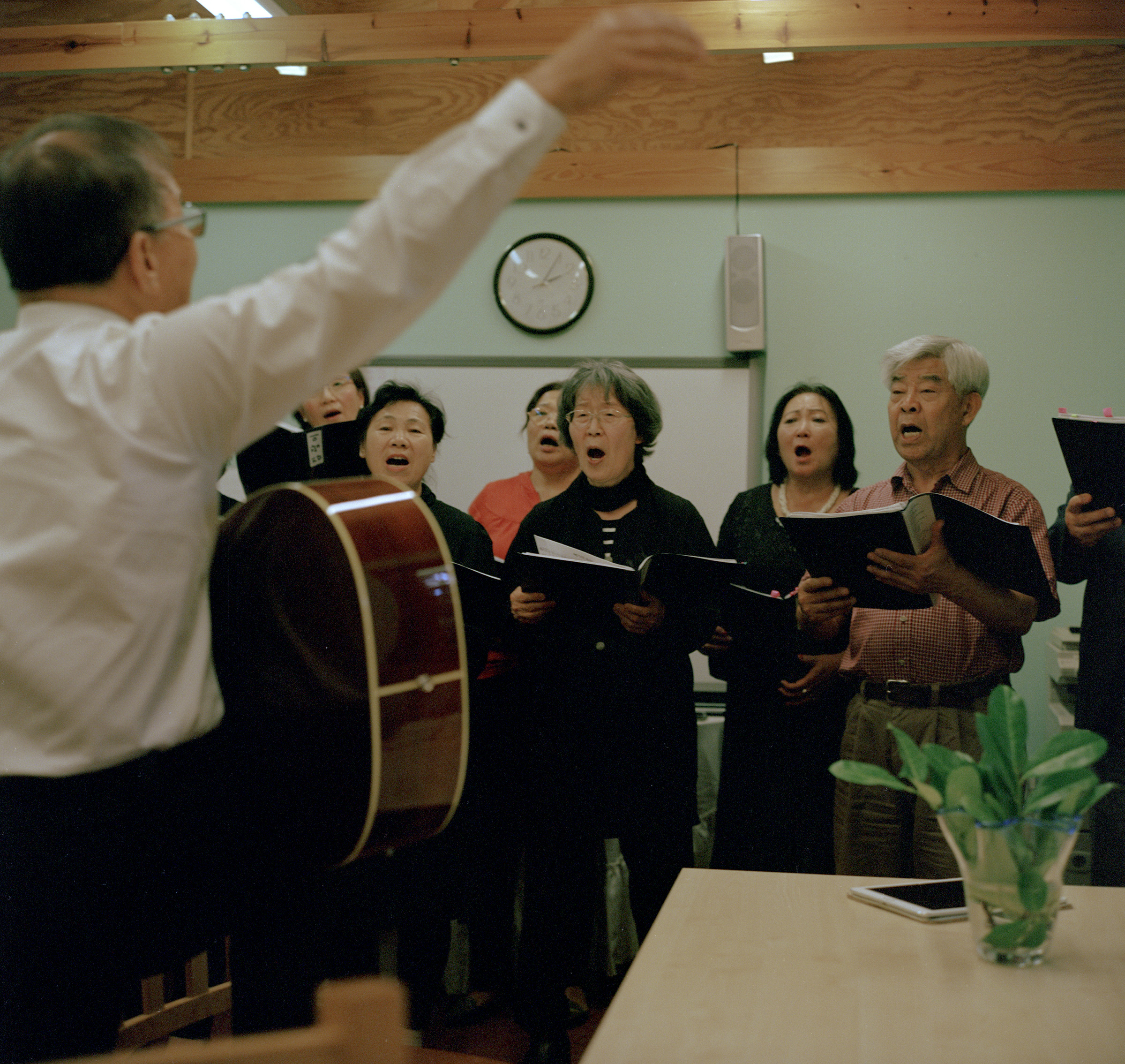When Surl Lee first came to Europe, he made a list. The struggling artist wrote down the names of 50 masterpieces housed in cities across the continent—Paris, Milan, Vienna—that he wanted to see with his own eyes, to be beguiled by their magic in a way not possible from afar. Back in his native North Korea, Surl’s grandfather had been a revered painter, who would create political portraits exalting the family of regime founder Kim Il Sung to mark important anniversaries or celebrations. Surl learned many techniques standing at his grandfather’s elbow and developed a special talent for ceramic sculptures. “I especially liked doing eagles,” Surl, 40, says over beer and bibimbap at a London restaurant. “They are free and can fly where they want.”
It’s fair to say that the drab London suburb of New Malden was never on Surl’s destination list. But like many North Korean escapees, Surl eventually settled in this unassuming neighborhood, some 11 miles southwest of central London. At its peak, an estimated 1,000 North Koreans lived amongst New Malden’s oak-lined streets of bungalows and squat housing blocks. Little Pyongyang, as some refer to New Malden, is home to purportedly the largest North Korean community outside the Korean Peninsula, though nobody knows for sure, given the clandestine nature of many escapee groups of dubious legal status scattered across the globe. It’s certainly the largest known one in Europe.
Read More: This London Suburb Is Home to Hundreds of North Koreans
New Malden started to become Britain’s Koreatown back in the 1950s, when a South Korean conglomerate signed a deal with a now-defunct British electronics firm called Decca Radar based in the town. Around the same time, South Korea’s first U.K. embassy took over a grand house at nearby Coombe Lane West, and later the first European headquarters of Samsung Electronics opened nearby. Both the embassy and Samsung have since departed New Malden, though the Korean communities they seeded have deep roots. By 2015, some 20,000 ethnic Koreans lived in New Malden and surrounding environs.
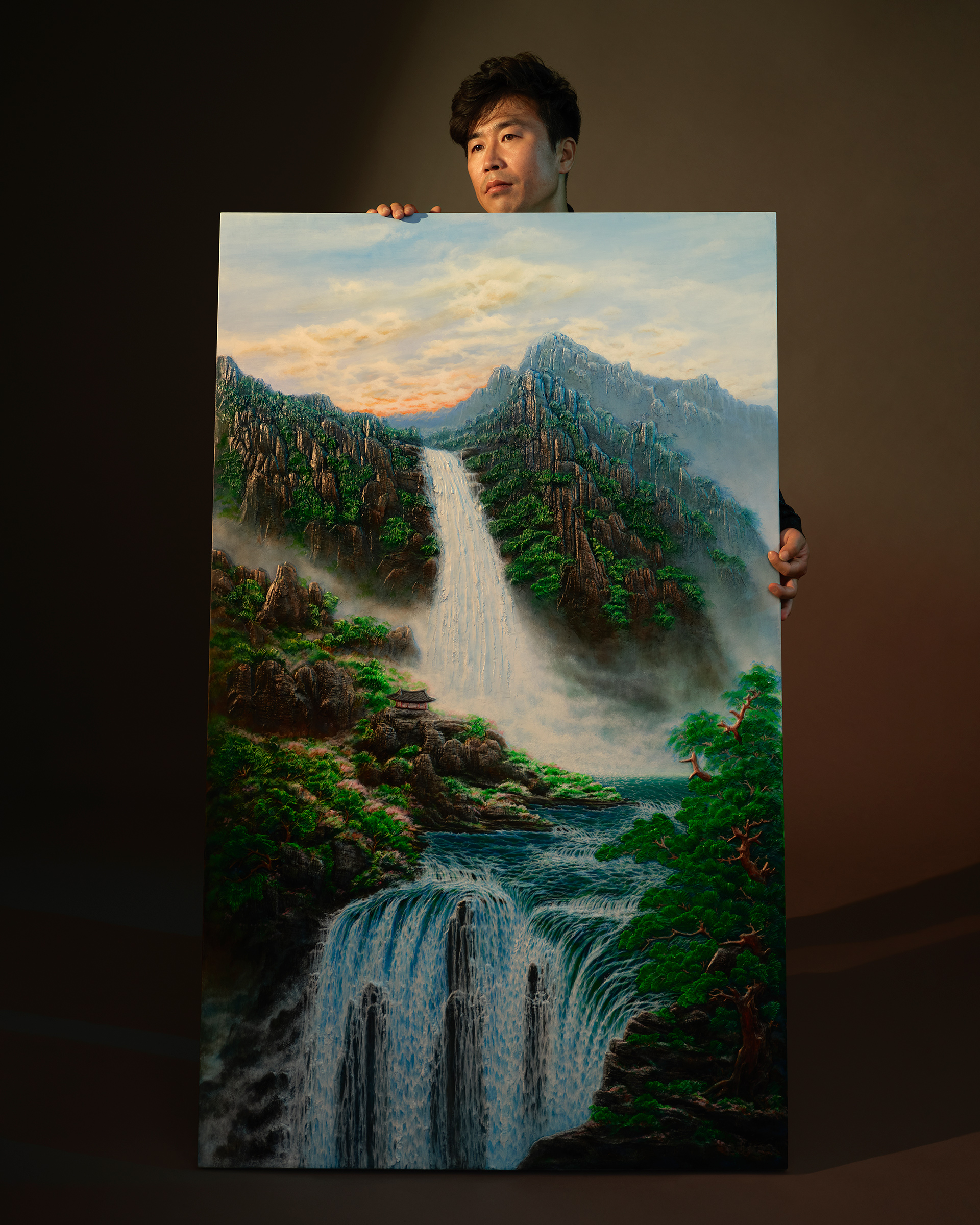
Stroll down New Malden High Street and half the faces and signage are Korean: there are Korean supermarkets, restaurants, hair salons, churches, bakeries, a realtor and karaoke bar. Children attend the Korean-language kindergarten and school; the elderly are cared for at a Korean elderly community center. Sore back? Try the Korean acupuncture center. The main office of the weekly Euro Journal—the highest circulation Korean-language newspaper across Europe, distributed to 19 countries—is also based here.
It was 2004 when the first North Korean officially claimed asylum in the U.K. More followed, and soon this fledgling community began gravitating to New Malden, given the opportunities to work at South Korean-run businesses that didn’t require fluent English. It soon grew into a boisterous and energetic hub where North Koreans would host events to celebrate special occasions such as Korea’s “Seollal” traditional Lunar New Year and “Chuseok” Harvest festival. NGOs popped up to serve the North Korean community as well as, like with the FreeNK newspaper, to agitate for political reform.
But times are changing. A tightening of British immigration policy combined with new “shoot to kill” orders at North Korea’s previously porous borders means that an influx of North Koreans has slowed to a trickle. Meanwhile, social and economic pressures combined with concerns over how the British government handled the COVID-19 pandemic has pushed many of New Malden’s North Koreans to leave for South Korea, where many already have citizenship and which had a death per capita rate less than a fifth of the U.K.’s. “Since its peak, the number of North Koreans here has just dwindled and dwindled,” says Michael Glendenning, the founder of Connect: North Korea, an NGO in New Malden that helps the community with language, education, legal and mental health needs.
This confluence of factors means that days might be numbered for one of the most vibrant North Korean communities anywhere in the world. Today, Glendenning estimates the number of North Koreans left in New Malden at around 400. For Surl, the exodus has meant fewer and fewer local customers for his extraordinary artworks. First he takes a large canvas and applies a coat of plaster, into which he carves meticulous patterns of flowers, a waterfall or a galleon tumbling through the ocean. This embossed template is then adorned with vivid colors.
A typical painting would take Surl three months of full-time work, he says, and it ends up taking more than a year when he squeezes painting time around his day job. In the last year, he’s been forced to give up his rented studio to work full-time in the warehouse of a Korean supermarket, sometimes pulling 16-hour shifts. His mother moved to South Korea last October, and he, too, is now seriously considering leaving. “A lot of people want to go back, or they have gone back already,” he says.
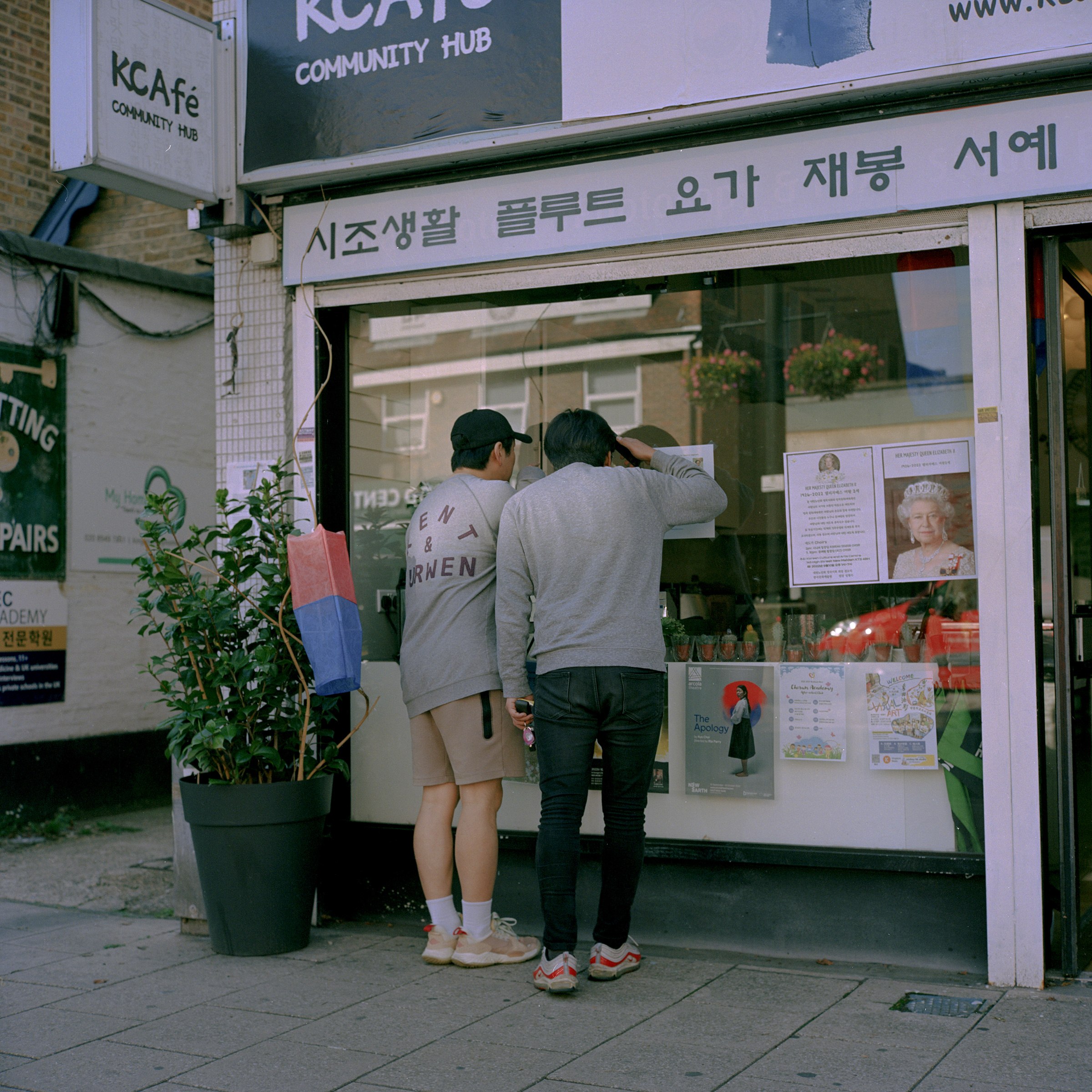
The vast majority of North Koreans who flee the “Hermit Kingdom” end up in the democratic South. According to South Korea’s Ministry of Unification, more than 33,000 North Korean refugees have resettled there as of December 2020. However, acclimatizing to the rapid pace of South Korea’s hypercompetitive society can be extremely challenging. The two nations may share a language and culture, but they have been separated by the barbed wire and minefields of the demilitarized zone, or DMZ, since an armistice effectively ended the 1950-53 Korean war. In the freewheeling South, society is awash with K-Pop, plastic surgery and bleeding-edge technology; in the Stalinist North, it’s mass games, bullock carts and bloody purges. Nowhere are two states so close yet so far apart.
Read More: The People of North Korea Are the Real Solution
It was a dissonance that Surl found difficult to reconcile. He fled North Korea in 1998, though he was a reluctant escapee. As a young man, his dream was to follow his grandfather by becoming a famous artist. “When I was a baby, I would play with his paint brushes,” says Surl. But despite his grandfather’s fame and patronage by the ruling elite, it wasn’t a comfortable living. In return for artworks, Surl’s grandfather would typically receive a bundle of gifts, like rice and beer. It wasn’t a steady income, and the family struggled to make ends meet.
When Surl was 11, his father died, so his mother went to China to seek work. At that time, North Korea was in the grips of a brutal famine, known locally as the Arduous March, stemming from economic mismanagement plus the loss of support from the recently dissolved Soviet Union. More than 500,000 North Koreans starved to death, according to U.S. Census data. Feeling lost and abandoned, Surl would frequently travel across the Tumen River that marks the northern part of North Korea’s border with China to search for his mom and beg for food. “I must have gone over at least 10 times,” says Surl. “I would knock on doors and ask people for help. Some would slam the door shut, but others would invite me in, give me food and a big bag of rice to take back.”
At that time, many North Koreans would routinely go to China with the help of corrupt guards, and Surl’s trips didn’t raise much attention. But as he grew older, he drew more notice. “North Korean people are always watching each other,” Surl says. “When things are normal, it’s O.K., but when things aren’t normal, they tell the police.”
In 1997, Surl was arrested for his trips to China and sentenced to a year in prison. At just 17, he was the youngest of 1,500 inmates. It was a brutal experience. Thousands starved outside the fetid prison’s barbed wire fence, and conditions were incalculably worse inside. “The guards all had long wooden batons and would beat us,” he says. “I saw people die every day.”
After his release, Surl was terrified of going back to China, but he needed money to start a business and appealed to his mother to help. She agreed to send him all the cash he wanted on one condition: that he briefly cross the Tumen River with his grandmother and sister so they could have a fleeting reunion. Reluctantly, Surl agreed. His mother bribed the border guards, and, in the dead of winter, they ran across the frozen expanse. Once across, Surl discovered that his mother had a fake South Korean passport waiting for him, and his grandmother and sister refused to return to North Korea. Surl wasn’t planning to flee, but now he had no choice but to continue onward with his family. “My mother tricked me,” he laughs, looking back on his inadvertent escape.
Read More: The Long Journey From North Korea to Freedom
China forcefully repatriates any North Koreans it discovers inside its borders, and it would have been too risky to fly directly to South Korea. So they took a circuitous route from Beijing to Hong Kong and then to Seoul, ripping up their fake passports on the plane and surrendering themselves to immigration authorities as North Koreans. “They were friendly and said, ‘Welcome to Seoul,’” Surl recalls.
South Korea makes a point of granting all North Koreans citizenship, provided they pass a lengthy debriefing and vetting process, mostly to root out fakers—typically Chinese Koreans who are economic migrants—and spies for the Kim regime. Once in Seoul, Surl thought he could finally put his artistic talent to use, and he studied industrial design at university. However, upon graduating, he found he never really enjoyed the work.
Surl’s mother, meanwhile, was captivated by the freedom of the West and decided to move to the U.K., eventually settling in 2003 among the Korean community in New Malden. Surl followed in 2006 and tried to make a living as an artist. But over the years, his visions of packed gallery openings faded, and he settled into a lifestyle that’s both comfortable and unfulfilling. “New Malden is not the U.K.; it’s just New Malden,” he says, with a chuckle and a tinge of regret. “All North Koreans live together, working for South Koreans, eating at Korean restaurants. All our friends are Korean. You don’t have to speak English at all.”
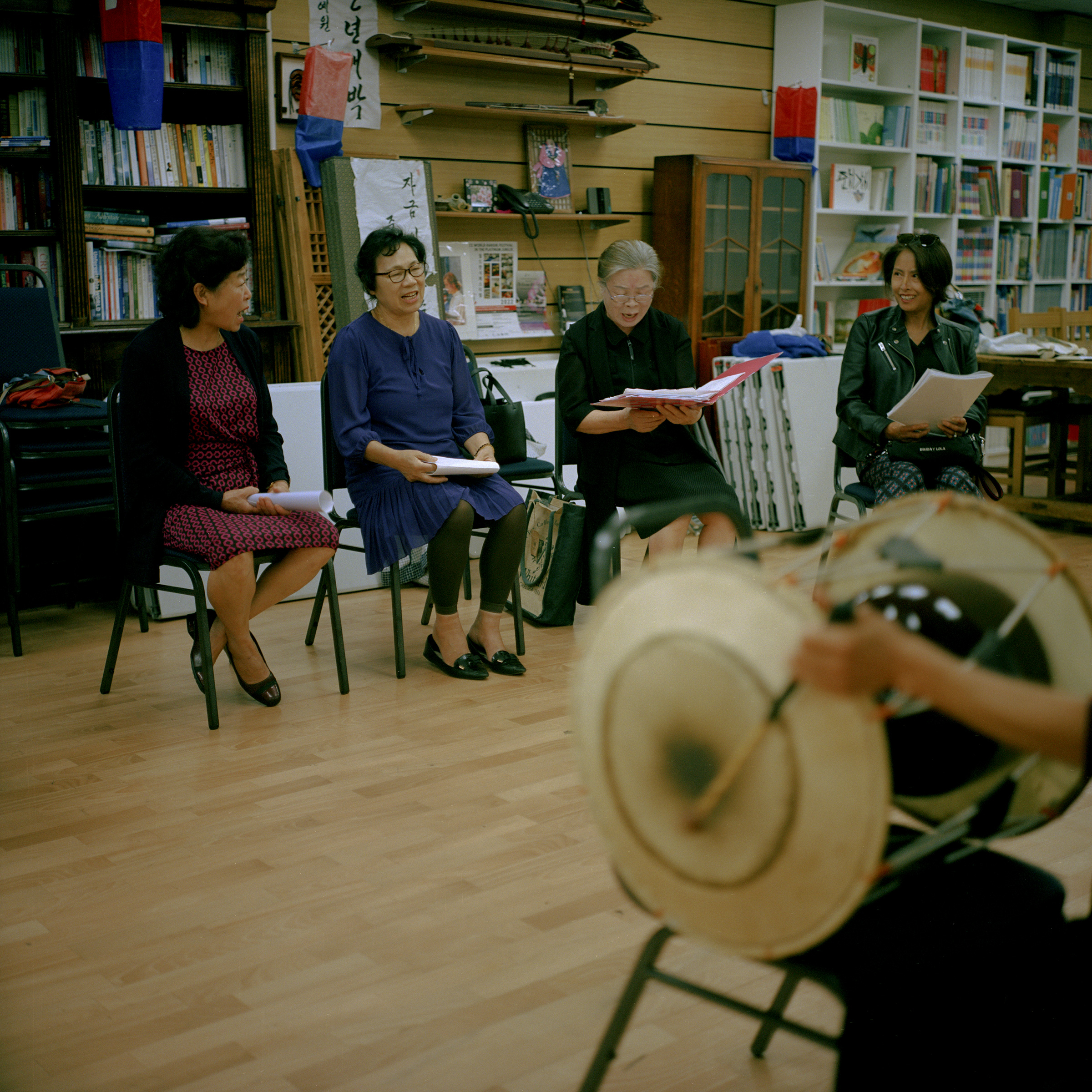
Stories like Surl’s aren’t difficult to find in New Malden, though many escapees bury their trauma, leading to a variety of social problems. Many drink heavily, and fights and brawls have been common, leading many North Koreans to spend spells in prison. The community hit the headlines in 2016 when a North Korean woman stabbed to death her common-law husband who had been abusing her. “About five years ago, it was really horrible,” says Yejin Lee (no relation to Surl) who works with Glendenning as director of Connect: North Korea. “But things are getting better now.”
In North Korea, Yejin says, the Kim regime still operates under the archaic notion that people with even mild mental health issues should be locked in an asylum. “So approaching [North Korean escapees] needs to be done very carefully,” she says. An additional hurdle in New Malden is that many North Koreans require translating help to speak with health professionals, and the fact that most volunteer interpreters are South Korean adds a trust barrier. Nevertheless, Connect: North Korea has made important headway, and despite the overall diminishing North Korean community, the organization says it has seen a marked uptick in users of mental health services in recent years.
Yejin was born in North Korea but fled with her mother to South Korea when she was just 11, before making the journey to the U.K. a year later. She says many North Koreans come to the West to escape being pigeonholed and stigmatized. They still suffer discrimination in the U.K., of course, though many find that’s less painful than being slighted by their own estranged countrymen. Plus there’s welcome anonymity in London’s diversity. “People in the U.K. are used to different peoples, so they don’t get the same kind of discrimination here,” says Yejin.
Still, tensions remain between the North and South Korean communities. Unable to speak fluent English, most North Koreans rely on South Koreans for employment. “There is ample opportunity for exploitative working practices as a result,” says Glendenning. “Quite a few of them underpay, sometimes they don’t pay, and conditions are not great.”
The bitterness goes both ways. One respected South Korean community worker, who asked to remain anonymous for fear of reprisals, accused the North Korean and Chinese Korean communities of a litany of underhand dealings. Chinese Koreans frequently send their children unaccompanied to the U.K., pretending to be North Korean orphans just to avail themselves of free education, she said, while married couples will pretend to be single in order to finagle an extra house paid for by the state that they then sublet. North Koreans burgle South Korean houses and bury their ill-gotten gains in their gardens, she claimed. They’re scandalous, unverifiable accusations but telling of the mistrust that persists.


Sun Hwa Griffiths has been working hard to smooth these tensions. For eight years, the South Korean community activist has been running the Korean Culture and Art Centre in New Malden that brings all Koreans together through more than 20 classes and activities, including Korean drums, calligraphy and dancing. She calls local divisions between North and South Koreans “quite ridiculous.” “It’s like East and West Germany,” she says. “We are sort of alike but separated by many things.”
I met Griffiths for coffee in the Centre’s new gleaming headquarters on New Malden High Street alongside Jeong Hee Lee (again, no relation to Surl or Yejin), the chairwoman of the North Korean Residents Association. Jeong Hee gleefully showed me a video on her smartphone of a recent show by some of her organization’s 120 members of a popular dance performance in which participants repeatedly swap brightly hued dresses live on stage. Jeong Hee also plays down divisions between the communities. “North Korean people just want to work hard and live peacefully and quietly, just to provide for their families,” she says.
Jeong Hee proudly tells me that her daughter was just 6 years old when she left North Korea and now she studies law at university in the U.K. But, in truth, it’s a rare success story. Among New Malden’s North Korean families, intergenerational frictions are amplified by a cultural chasm, which includes the fact that parents and their children have different first languages. “Children don’t really settle well in school,” says Yejin. “Because of the language barrier with their parents, there’s no communication between them.”
These struggles to make a stable home have contributed to North Koreans’ exodus from New Malden. And despite sincere efforts by Connect: North Korea and others to keep the community alive, U.K immigration policy means those leaving aren’t being replaced.
The fact that North Koreans can all claim South Korean citizenship prompted the U.K. authorities to tighten up. A pillar of British asylum policy is that those with a “safe haven” elsewhere are encouraged to avail themselves of that opportunity. In 2008, the British government came to an agreement with South Korea’s government to check the fingerprints of North Koreans claiming asylum in the U.K. Those who had previously passed through South Korea and were registered in its citizenship database would be rejected. This dovetailed with a crackdown on Chinese Koreans pretending to be from the North. The U.K.’s rejection rate of North Korean asylum applicants increased from 7.4% in 2007 to 80.1% in 2009. While technically every U.K. asylum application is considered individually, ever since “it’s basically been a blanket rejection for every [North Korean] coming in,” says Glendenning. Cognizant that the door is effectively shut, the number of North Koreans coming to the U.K. has declined to single digits in recent years.
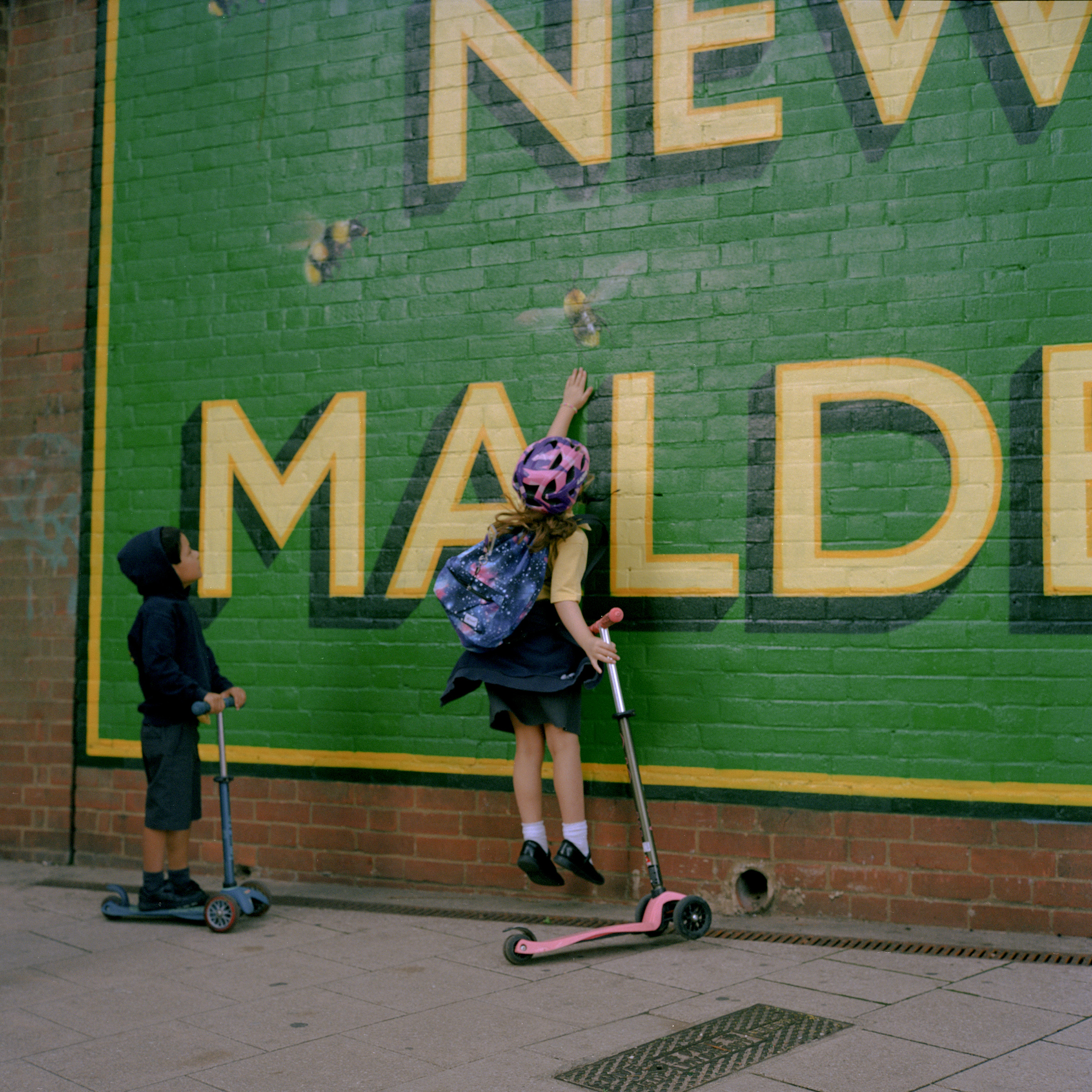
The U.K. Home Office justifies its policy on the grounds that North Korean nationals are recognized as citizens of South Korea, which it deems a “safe and secure country.” Isik Oguzertem, the director of Refugee Action Kingston—the borough where New Malden is situated—says that a common assumption is that all refugee communities should be treated the same. “But it’s not always the case,” he says, “you can’t always define their needs and aspirations in one particular way.”
Jeong Hee, for one, believes it’s far easier for North Koreans to overcome trauma as far from the Koreas as possible. “In South Korea, we regularly get phone calls or pressure from spies intimidating us to go back to North Korea,” she says. “But here we feel safe.” That was, until the pandemic upturned much of the security they enjoyed. “In the U.K., it takes six months for a hospital appointment,” says Surl. “In South Korea, it’s one or two days.”
Instead of escapees from the Kim regime, New Malden today is welcoming more and more arrivals from sub-Saharan Africa to Hong Kong, where a crackdown by the Beijing government has seen freedoms severely curtailed. Today, only 20% of the workload of Refugee Action Kingston involves people presenting as North Koreans. As the New Malden community dilutes, one of the world’s only safe havens for a long-repressed people and culture will slowly vanish. “Mainly, we’ve only got elderly people left,” says Yejin. “And the community is only going to get smaller as time passes.”
Read More: Why a North Korean Defector Says the Regime Will Soon End
The dwindling of Little Pyongyang means that previously local NGOs like Connect: North Korea are widening their focus. On Sept. 6, it launched an Enabling Freedom Network to enhance the education and leadership skills of North Korean escapees. The aim is to help North Korean change-makers—from lawyers and teachers to social entrepreneurs and medical professionals—get qualifications and social leadership training. It’s open to North Koreans with settled status anywhere in the world. Already, Connect: North Korea has helped North Koreans in New Malden achieve qualifications from everything from medicine to beekeeping.
Surl Lee has also begun to set his sights farther afield. He’s saving to buy a small guesthouse or homestay somewhere in rural South Korea. “In New Malden, I work too hard and am always tired,” he says. “I want to rest in the forest! But in the U.K., even the forest costs a lot.” Once there, he hopes to earn enough to live comfortably while having time to paint, perhaps opening a small studio where guests can browse his art. About that list of European masterpieces? “I’ve not seen any of them,” he shrugs. “Maybe later.”
More Must-Reads from TIME
- How Donald Trump Won
- The Best Inventions of 2024
- Why Sleep Is the Key to Living Longer
- Robert Zemeckis Just Wants to Move You
- How to Break 8 Toxic Communication Habits
- Nicola Coughlan Bet on Herself—And Won
- Why Vinegar Is So Good for You
- Meet TIME's Newest Class of Next Generation Leaders
Write to Charlie Campbell/London at charlie.campbell@time.com
